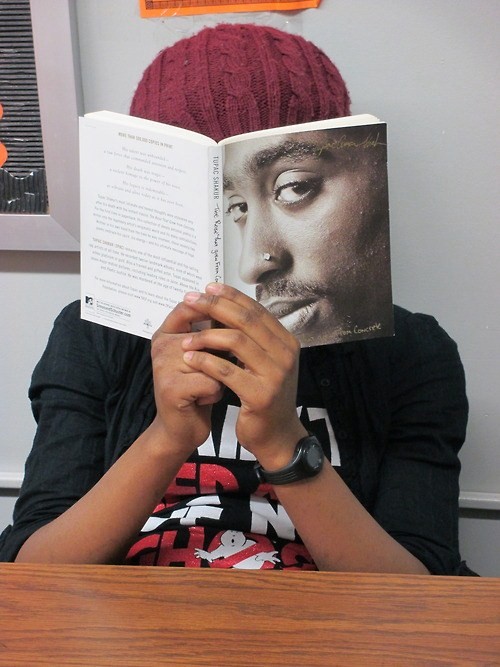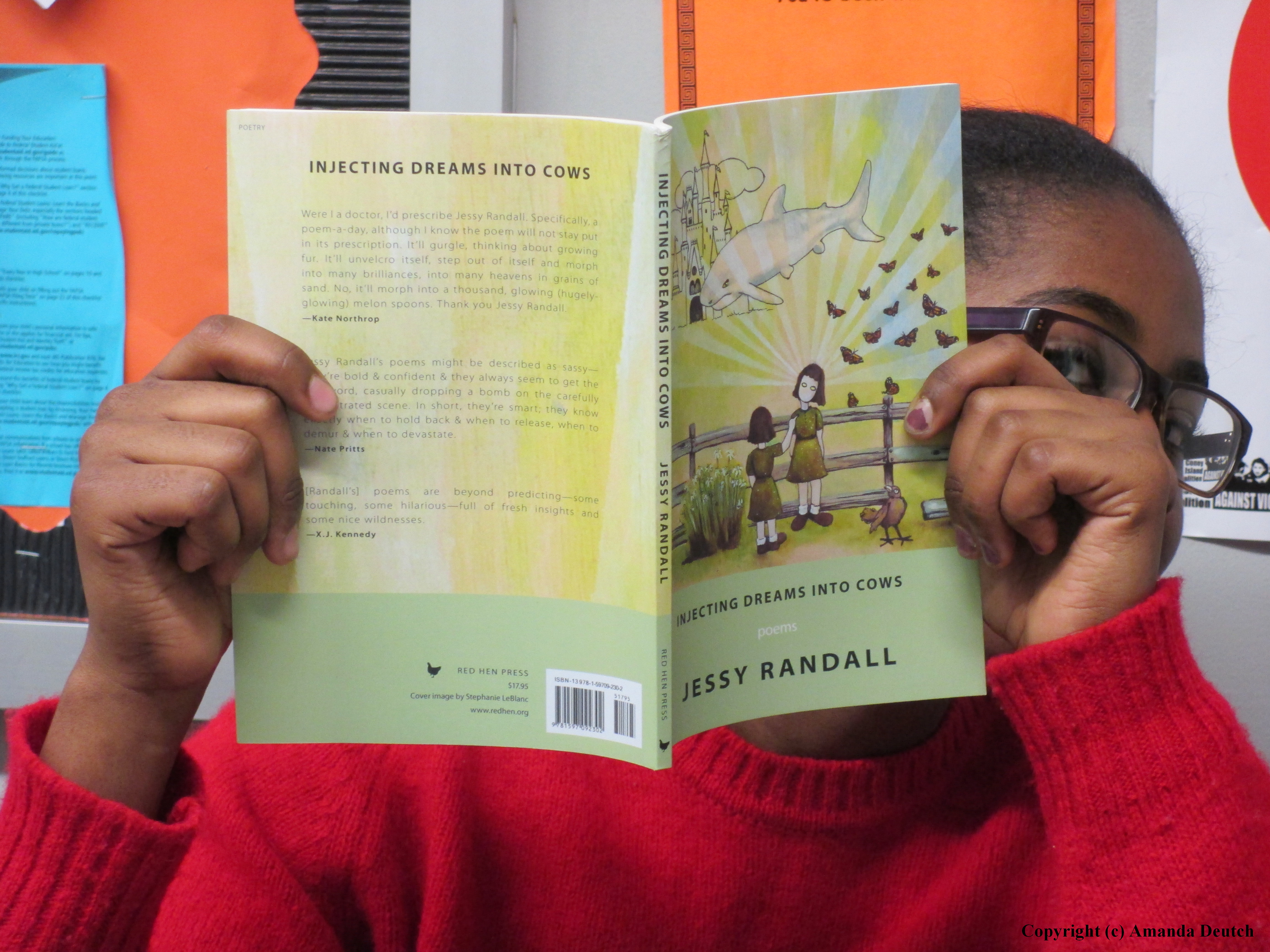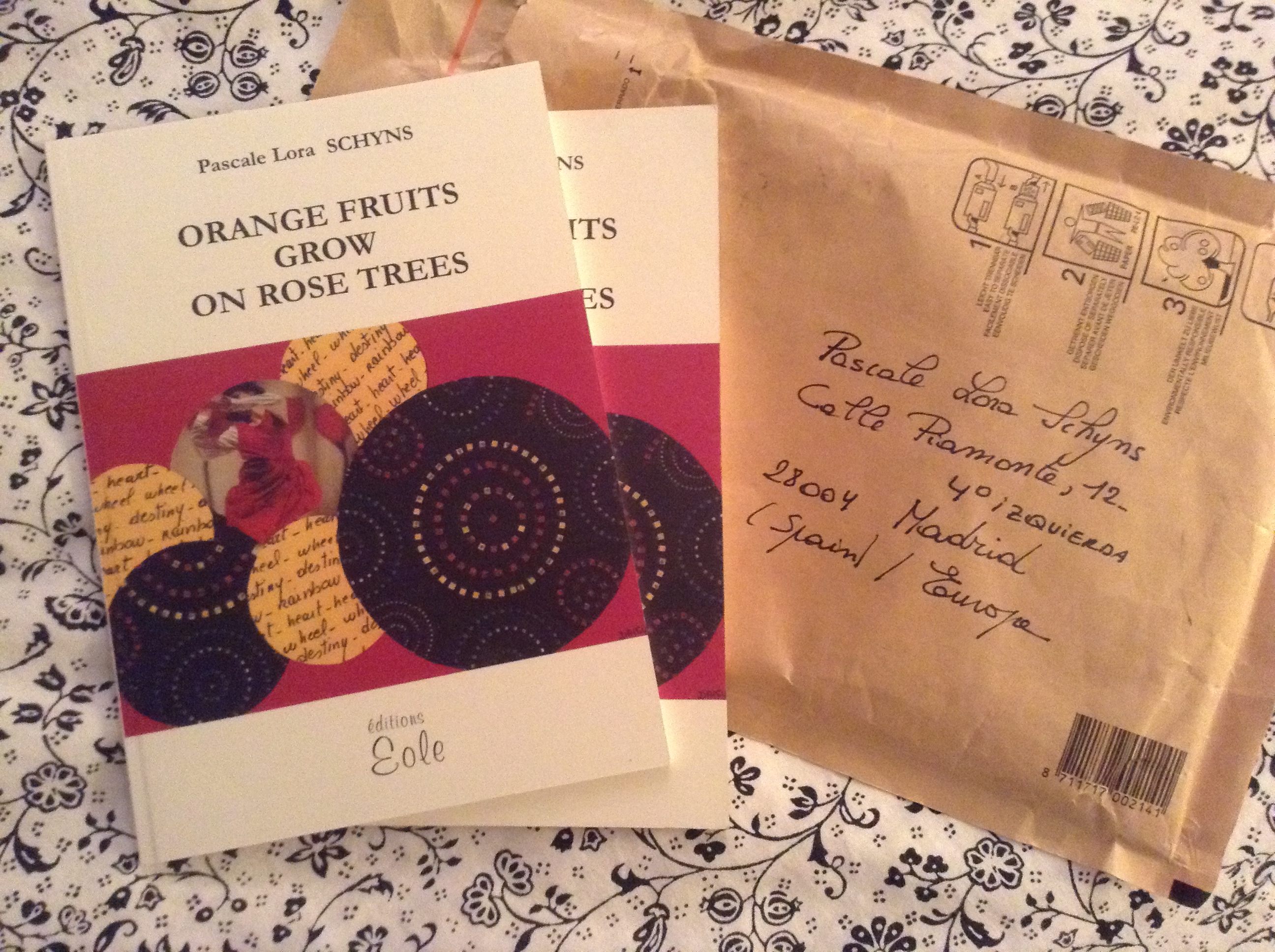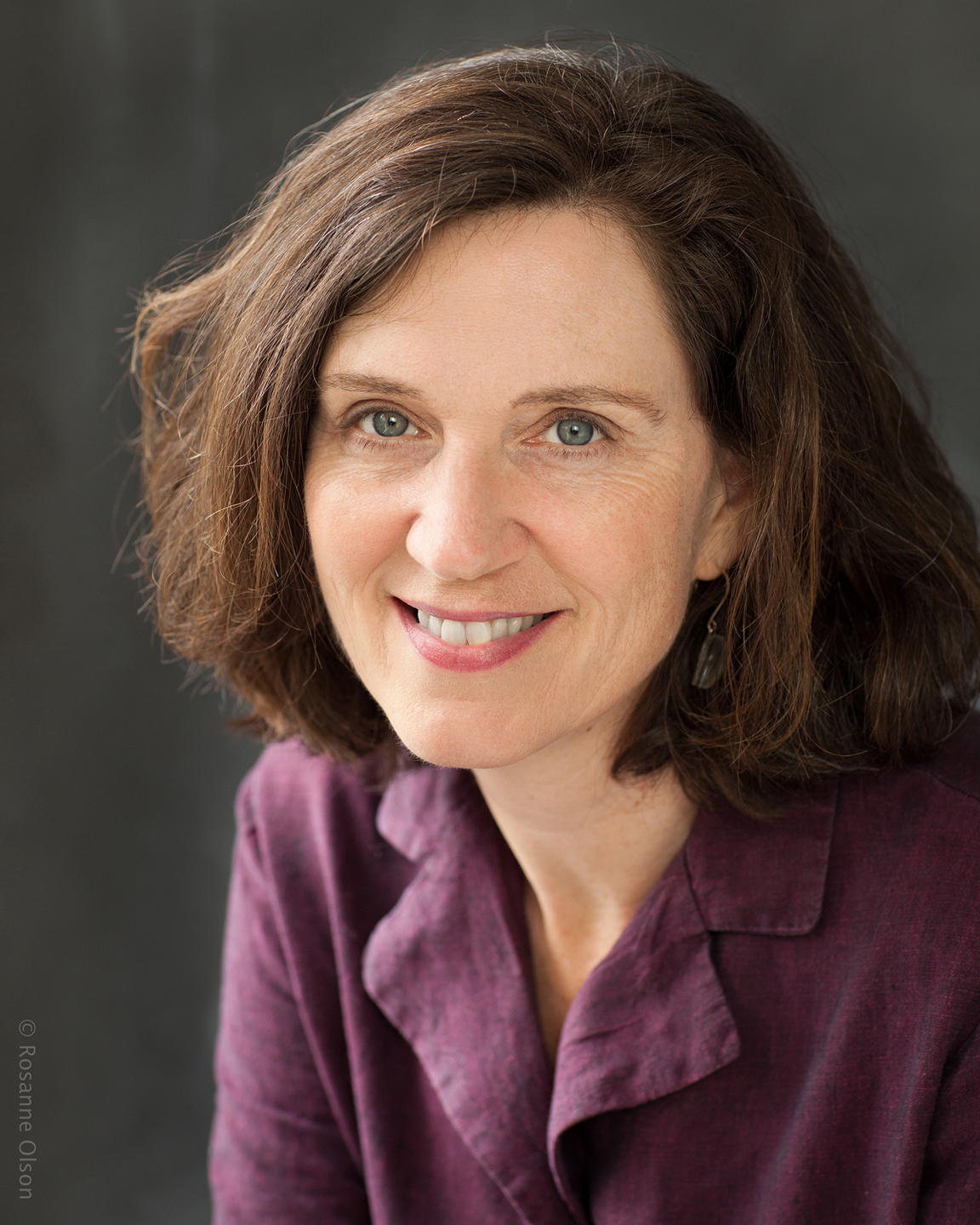Poet and artist Amanda Deutch blogs about her P&W–supported poetry workshop for young women at the YWCA in Coney Island. She is the author of four chapbooks: Gena Rowlands, Box of Sky: Skeleton Poems, Motel Drift, and The Subway Series. She is also the recipient of a 2007 Footpaths to Creativity Fellowship to write in the Azores Archipelago.
 Celebrities flash everywhere: billboards, newspapers, computer screens, televisions. We live in a KarGaGaianBieber glowing orb of a virtual society. They suggest what we buy, how we dress, how we live, and what we consider beautiful. Unfortunately, Warhol’s prediction of fifteen minutes of celebrity fame has drawn out to become several hours of fame and in some cases, even years of it. Like it or not, we know celebrity's faces, their favorite coffee drinks, and the names of their pet monkeys.
Celebrities flash everywhere: billboards, newspapers, computer screens, televisions. We live in a KarGaGaianBieber glowing orb of a virtual society. They suggest what we buy, how we dress, how we live, and what we consider beautiful. Unfortunately, Warhol’s prediction of fifteen minutes of celebrity fame has drawn out to become several hours of fame and in some cases, even years of it. Like it or not, we know celebrity's faces, their favorite coffee drinks, and the names of their pet monkeys.
Thursday afternoons, I lead a poetry workshop for the YWCA’s teenage girls’ empowerment program in Coney Island. Poets & Writers has generously funded eight out of a year’s worth of these workshops. (We still seek funding for the rest of them, as the workshop is such a success that we plan to keep coming back!) One Thursday, two of the teenagers were clamoring and giggling over Justin Bieber. Fourteen-year-old Medina screamed, “I have total Bieber fever!” Medina is a beautiful teenager with an infectious smile who lives in Coney Island, a low-income, urban neighborhood at the end of the subway line. This is not who first comes to mind when I think of Bieber’s fan base. But I am glad that life continues to surprise me. I decided to follow the guidelines we set forth at the beginning of the writing workshop: to suspend judgment and listen.
"What do you like about him and his music?" I asked. Then I asked, “Would you like to write celebrity poems?” “Yesssss!” We read Frank O’Hara, Diane DiPrima, and newpaper articles about celebrities. We wrote poems about a chosen celebrity, incorporating lyrics from their songs or language from news clippings. The topics of media, celebrity, and pop culture brought up great conversations in the room about fashion, body image, women in media, and intelligent role models. Below are some of our celebrity poems. Can you guess who the celebrities are? (Answers can be found at the bottom of this page.) If you’d like to read more of the teenager’s poetry, see our magazine online, Teenager Fever Magazine.
Hello Superstar
by Maya
I don’t know who you are
all I know is what I see
all over the silver screen
Plastic here plastic there
Short outfits
Outrageously colored hair
But what about your life?
What shows do you watch
on tv or do you watch tv at all?
Do you eat fried chicken stereotypically
or some gourmet stuff that
I can’t afford?
Do you shop at the mall?
Or does someone do it
for you?
Do you run your own
household or do
maids do all the work?
I’m not an overly
obsessed fan
but I just wanna see
beyond my tv.
Nobody’s Perfect
by Imani
Dear________,
I adored you since day one.
From your hit tv show to your
goofy catch phrases. Your hair
fascinated and intrigued me.
I envied the life you lived and
wanted to be you more than anything.
Then one day it was said that you
released nudes. I didn’t care.
You were still my idol and fashion
icon. Just like me, you
absolutely loved your dog. Then
one day you just vanished off the
face of the Earth and came back
with an EPIC haircut. Oh how
I admired it. Everyone made jokes
and criticized it, but I knew it was
for a great cause. When you
finally marry Liam
I’ll be there to throw rice as you
walk out.
Young Money
by Gavrielle
Your songs go from hell and
back
Range from As to Zs
You can bring the final knockout
You have hate in your
heart, love in your mind
You see nights
full of pain and
days that are the same
Young Money
"Hello Superstar" is about Nicki Minaj; "Nobody’s Perfect" is about Miley Cyrus; "Young Money" is about Lil Wayne. (In case you are wondering, Justin Bieber’s illegal pet monkey’s name is Mally. But c’mon like you didn’t already know that!)
Photo: Workshop participant Maya reading Tupac Shakur's The Rose that Grew from Concrete. (Credit: Amanda Deutch.)
Support for Readings/Workshops in New York City is provided, in part, by public funds from the New York State Council on the Arts and the New York City Department of Cultural Affairs, with additional support from the Louis & Anne Abrons Foundation, the Axe-Houghton Foundation, The Cowles Charitable Trust, the Abbey K. Starr Charitable Trust, and the Friends of Poets & Writers.





 13 I put out a call for poetry books to create a lending library for the YWCA after-school teen empowerment program where
13 I put out a call for poetry books to create a lending library for the YWCA after-school teen empowerment program where  eeks ago and said, “Miguel Pinero, he’s the realest.” I said, “Yeah, his poetry changed the course of my life. Before that all I ever saw was poetry about daisies, not that I don’t like daisies. We don’t have any books of his, yet, but why don’t you read Sheila Maldonado? She’s a local poet, born around here.” He checked her book out of our new burgeoning library (and made my day). There are so many interactions like this. Maya is a thirteen-year-old student at the writing workshop. She soaks up information and is very talented. One day she came in asking me about a poem she’d seen that looked like an eye. We had a conversation about the French poet Guillaume Apollinaire and for the next week’s class I brought in one of his books. She poured over the pages and held it up saying, “This one is my favorite.” I instantly got chills and realized, here I was in a classroom in Brooklyn, in Coney Island, discussing surrealist French poetry with a thirteen-year-old girl.
eeks ago and said, “Miguel Pinero, he’s the realest.” I said, “Yeah, his poetry changed the course of my life. Before that all I ever saw was poetry about daisies, not that I don’t like daisies. We don’t have any books of his, yet, but why don’t you read Sheila Maldonado? She’s a local poet, born around here.” He checked her book out of our new burgeoning library (and made my day). There are so many interactions like this. Maya is a thirteen-year-old student at the writing workshop. She soaks up information and is very talented. One day she came in asking me about a poem she’d seen that looked like an eye. We had a conversation about the French poet Guillaume Apollinaire and for the next week’s class I brought in one of his books. She poured over the pages and held it up saying, “This one is my favorite.” I instantly got chills and realized, here I was in a classroom in Brooklyn, in Coney Island, discussing surrealist French poetry with a thirteen-year-old girl. For a relatively small city, Seattle has a thriving literary community. What do you attribute this to?
For a relatively small city, Seattle has a thriving literary community. What do you attribute this to? Celebrities flash everywhere: billboards, newspapers, computer screens, televisions. We live in a KarGaGaianBieber glowing orb of a virtual society. They suggest what we buy, how we dress, how we live, and what we consider beautiful. Unfortunately, Warhol’s prediction of fifteen minutes of celebrity fame has drawn out to become several hours of fame and in some cases, even years of it. Like it or not, we know celebrity's faces, their favorite coffee drinks, and the names of their pet monkeys.
Celebrities flash everywhere: billboards, newspapers, computer screens, televisions. We live in a KarGaGaianBieber glowing orb of a virtual society. They suggest what we buy, how we dress, how we live, and what we consider beautiful. Unfortunately, Warhol’s prediction of fifteen minutes of celebrity fame has drawn out to become several hours of fame and in some cases, even years of it. Like it or not, we know celebrity's faces, their favorite coffee drinks, and the names of their pet monkeys.